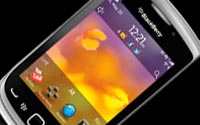Smartphones Don't Outpace Feature Phone Preferences
- by Mark Walsh @markfwal, February 28, 2012

Smartphones are on the rise, but don’t count out feature phones. That’s the message of a new Yankee Group report, which finds that 70% of feature phone owners don’t plan to buy a smartphone as their next device. They plan to sign up for two more years of service on their regular handsets.
Overall, about 51% of U.S. mobile users have feature phones, while 43% own smartphones. Yankee Group defines a smartphone as one that uses a major operating system, such as iOS, Android, Symbian, Windows Phone, Linux or BlackBerry.
The research firm acknowledges that smartphone adoption will continue at a steady pace. It predicts consumer smartphones in the U.S. will nearly double from 97 million to more than 175 million in 2015. And 58% of those surveyed overall plan to get a smartphone.
But the study suggests that feature phone owners aren’t as eager to snap up smartphones as one might assume, given the attention lavished on high-end devices like the iPhone. Half say they are satisfied with their current phone, and 40% cite the cost of smartphones and their associated data plans, which typically start at about $30.
The two types of phones attract different populations. Feature phone owners are almost 20 years older on average than smartphone users, more likely to be women (57%) and less affluent. The former earn $64,095 per year on average compared to $77,645 for smartphone users, who also spend $23 more on their monthly phone bill.
Another key difference is in how they use their respective devices. Smartphone owners typically surf the mobile Web for 27 minutes a day, while their feature phone counterparts go online for only one minute a day. Most regular phone users lack a data plan. Even so, it underscores why advertisers have generally been more focused on smartphones because of the higher level of mobile content interaction.
If Google has its way, however, the two groups of mobile users will increasingly converge. Speaking at the Mobile World Congress Tuesday, Google Chairman Eric Schmidt indicated that Android devices will be priced comparably to feature phones by next year.
Among smartphone owners, the iPhone is the most desired -- but Android is not far behind. Nearly one in three (30%) who would select a different device want the Apple handset, but 28% would opt for a device built on the Google platform. Only 16% are interested in a BlackBerry and 14% in a Windows Phone device. And only 3% are considering a Nokia.
That’s not encouraging news for an alliance between the Finnish phone giant and Microsoft as they try to mount a credible threat to Apple and Google in the smartphone wars. Microsoft had only 4% share of the U.S. smartphone market at the end of 2011, according to comScore.
The Yankee Group research also found that QWERTY keyboards are not necessarily history. About seven in 10 consumers (69%) say full keyboards are a must-have or nice-to-have feature in their next mobile phone. Nearly as many (65%) say a touchscreen is important. Cameras and Internet access are also viewed as key phone features.
Conversely, over-the-air TV and NFC (Near-Field Communication) were not considered must-have phone capabilities. Only 29% say mobile TV is a key feature and 23% say that NFC is -- the technology smartphone makers are increasingly building into phones to enable contactless payments. The report suggests that manufacturers have at least another handset lifecycle before incorporating NFC into devices.
The study findings were based on data collected from more than 15,000 U.S. consumers age 13 plus in December 2011. It also draws on predictive data from Yankee Group’s North American consumer forecast in December.



This is where a service like speakEZ can really shines. We are a voice-to-text service. The service can be used by 100% of mobile phone customers unlike QR codes. When a brand has a compelling offer promoted via traditional media (Print, Radio, TV, Billboard, Signage…), our objective is to connect the brand to the consumer at the moment of impulse through the simplicity of Voice…Call a Number, Say a Phrase, Get a Text. www.myspeakez.com